My third novel is ‘done,’ but not really, because after I typed “THE END,” I went right back to the beginning and started editing. Was that the right thing to do, or should I have waited a week or two? Cooled off? Got some distance? I put the question to my friend, the writing genius and all-around great person Lexi Miles. Lexi knows of what she speaks. She writes, she blogs, she promotes, all with an energy that I wish she’d bottle and sell.
Lexi not only weighed in on matters of editing, but she inspired an idea: Why not do a Q & A double-header? Two writers. Two edits. Plenty of questions…and selfies too!
Voila!
1.
When you sit down to edit, how do you begin your process?
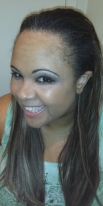 Lexi Miles: The first thing that I do is to make sure that I am editing in a space that is free of distractions. My preference is for it to be quiet when I settle in to edit. After that, like a beta reader, I just read through it looking for the big issues. I try to find anything that jumps out at me: errors (ex: spelling, etc.), holes in plotting, loose ends, my personal favorite all names are correct (Giggles. I have swapped a few characters a time or two.), and all other major issues. In the first sweep, I also look for points that may need clarification and enhance points to strengthen the outcome of events in later chapters.
Lexi Miles: The first thing that I do is to make sure that I am editing in a space that is free of distractions. My preference is for it to be quiet when I settle in to edit. After that, like a beta reader, I just read through it looking for the big issues. I try to find anything that jumps out at me: errors (ex: spelling, etc.), holes in plotting, loose ends, my personal favorite all names are correct (Giggles. I have swapped a few characters a time or two.), and all other major issues. In the first sweep, I also look for points that may need clarification and enhance points to strengthen the outcome of events in later chapters.
 A.B. Funkhauser: My mind must be absolutely clear, which means I can’t have anything out there that’s been left undone. So, if the lawn needs raking, I rake it. If the kids need a hand with a big study project, I’m there. When all’s done, it’s me and the book, and that’s the way it pretty much is until it’s done! 😀
A.B. Funkhauser: My mind must be absolutely clear, which means I can’t have anything out there that’s been left undone. So, if the lawn needs raking, I rake it. If the kids need a hand with a big study project, I’m there. When all’s done, it’s me and the book, and that’s the way it pretty much is until it’s done! 😀
2.
What is one of the most rewarding and joyful aspects of editing?
 AB: My writing gets better with each outing, and that comes from doing, doing, doing. That’s what I see in the editing. There are fewer missteps and errors, and when I do find something, it’s glaring. No second-guessing because I’ve been there before. Best of all, I’m getting a better handle on the fixes. It took three books, but I can finally ‘see’ the problems fast and, even faster, get them fixed because I know how. That’s satisfaction in editing.
AB: My writing gets better with each outing, and that comes from doing, doing, doing. That’s what I see in the editing. There are fewer missteps and errors, and when I do find something, it’s glaring. No second-guessing because I’ve been there before. Best of all, I’m getting a better handle on the fixes. It took three books, but I can finally ‘see’ the problems fast and, even faster, get them fixed because I know how. That’s satisfaction in editing.
 LM: One aspect that I find to be the most rewarding is that I have a chance to sit down and read what I have written. I love being able to enjoy it as a reader.
LM: One aspect that I find to be the most rewarding is that I have a chance to sit down and read what I have written. I love being able to enjoy it as a reader.
3.
What are some of the challenging aspects of editing?
 LM: It can be tedious. In addition to that, between us, I am someone that likes to deliver a high standard of excellence in anything that I do. So, one of the hardest realities for me to accept is that no matter how many times or how many eyes are upon the novel there are going to be a few things that slip through. It is just the process of publishing a novel.
LM: It can be tedious. In addition to that, between us, I am someone that likes to deliver a high standard of excellence in anything that I do. So, one of the hardest realities for me to accept is that no matter how many times or how many eyes are upon the novel there are going to be a few things that slip through. It is just the process of publishing a novel.
 AB: First and foremost, you have got to be well-rested when tackling this. If three great days are followed by an hour or two of sheer grind, then something’s up. It usually means my attitude is skewed either because I’m tired or my mind is wrapped up in something else. When the grind hits, I walk away for a few hours or days and then go back with fresh eyes. Makes a huge difference.
AB: First and foremost, you have got to be well-rested when tackling this. If three great days are followed by an hour or two of sheer grind, then something’s up. It usually means my attitude is skewed either because I’m tired or my mind is wrapped up in something else. When the grind hits, I walk away for a few hours or days and then go back with fresh eyes. Makes a huge difference.
4.
Have you over-edited a part of your novel and it turned into a disaster? If so, how did you go about fixing it?
 AB: Ha! See above. In the beginning, yes. This was mostly because I didn’t know how to spot an indulgence, and when I did, didn’t have the heart to ‘kill my darling.’ This improved thanks to the hashtag games on Twitter. There’s nothing more exhilarating than taking an overwrought beauty, chopping it down to 140 characters, and then finding that it’s…BETTER!
AB: Ha! See above. In the beginning, yes. This was mostly because I didn’t know how to spot an indulgence, and when I did, didn’t have the heart to ‘kill my darling.’ This improved thanks to the hashtag games on Twitter. There’s nothing more exhilarating than taking an overwrought beauty, chopping it down to 140 characters, and then finding that it’s…BETTER!
But now as then, I always save the full MS at the end of each day as insurance. That way, nothing’s lost and anything can be restored.
 LM: (Laughs) Oh yes. I have done this. Unfortunately, the first time that I did it I completely messed it up. I ended up hating that part so much that I removed it and had to try my best to rewrite the original from memory. It was such a heartbreaking experience. The process taught me a few new tricks. So what I have learned is to edit on a copy of the book and not the original. That way, if I tinker too much with a certain part, I can copy that section from the original and begin again. Adding to that, I limit the size of my edit. I will not write more than a certain amount of words. I find this minimization restricts me from altering the original idea beyond what I loved about it as well as makes me construct my words in a way in which I have to make my words concise, powerful, and count. It helps me to keep focused and continue to drive the story forward at a great pace.
LM: (Laughs) Oh yes. I have done this. Unfortunately, the first time that I did it I completely messed it up. I ended up hating that part so much that I removed it and had to try my best to rewrite the original from memory. It was such a heartbreaking experience. The process taught me a few new tricks. So what I have learned is to edit on a copy of the book and not the original. That way, if I tinker too much with a certain part, I can copy that section from the original and begin again. Adding to that, I limit the size of my edit. I will not write more than a certain amount of words. I find this minimization restricts me from altering the original idea beyond what I loved about it as well as makes me construct my words in a way in which I have to make my words concise, powerful, and count. It helps me to keep focused and continue to drive the story forward at a great pace.
5.
Can you please share what techniques you find helpful to identify or catch issues in your work? (ex: know favorite words that get overused, favorite words to misspell or misuse, other issues that you’ve spotted that you now look for, any helpful tips that are you go-to, etc.)
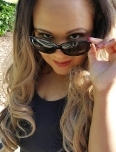 LM: For me, there are several things. The first, I know my overused words or favorite to misuse. I look for them. The second, I use a checklist similar to the helpful links included at the end. Another, I read out loud. It helps me to catch things that I might miss in my head. And finally, the best tips that I can offer you is to make notes about what past editors/betas have caught and always look for new editing tips resources that can help you.
LM: For me, there are several things. The first, I know my overused words or favorite to misuse. I look for them. The second, I use a checklist similar to the helpful links included at the end. Another, I read out loud. It helps me to catch things that I might miss in my head. And finally, the best tips that I can offer you is to make notes about what past editors/betas have caught and always look for new editing tips resources that can help you.
 AB: Scene for scene, I will read each one aloud after an edit session to listen for the clunkers that can so easily be missed in quiet reading. Then I move on to the next. The next day, I go back and reread the previous day’s work before beginning new sections. I always find more to trim!
AB: Scene for scene, I will read each one aloud after an edit session to listen for the clunkers that can so easily be missed in quiet reading. Then I move on to the next. The next day, I go back and reread the previous day’s work before beginning new sections. I always find more to trim!
Reading aloud also helps me identify my favorite repeaters: ‘at once’ ‘surely not’ ‘outrageous’. When I hear them, I make a note of them and then do a universal search at the end to prune them out.
My very first manuscript years ago had over 200 cuss words. Lol. I was able to cut them to 5 very essential oaths. I was proud of that!
Dropped words are a constant. “Do you have cat?” instead of “Do you have a cat?” I’m always on the lookout for dropped words. Hyphens and em/en dashes are also a bane. I either over-use them, or don’t use them enough. I’m working on this too. Lol.
6.
In what ways have you improved your editing? (Time efficiency, Using Deadlines, Sticking to Specific Steps, Checklist, Betas, other, etc.)
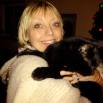 AB: Beta readers are crucial, but to help them out, I work very hard to deliver the cleanest possible draft I can. I also parse out assignments so that no one is overwhelmed. Some betas look for the aforementioned dropped words, repeaters and spelling, while others check for continuity, credulity and pacing.
AB: Beta readers are crucial, but to help them out, I work very hard to deliver the cleanest possible draft I can. I also parse out assignments so that no one is overwhelmed. Some betas look for the aforementioned dropped words, repeaters and spelling, while others check for continuity, credulity and pacing.
I’ve also learned that editing, like novel writing, cannot be done in a week. It’s a slow, lengthy process if you want to get it right. I’ve worked hard to make a friend of it. Atmosphere, background music and regular breaks help, along with very understanding family members that don’t mind pizza three times a week. lol
 LM: I stick to specific steps on my sweeps (editing passes) and follow them in order. To give you more insight as to what I am referring to, I start edits as I am writing the novel. I edit at the end of each chapter. Then on the first read through of the full length written novel, I don’t attempt to edit the numerous issues all at once. I address the sizable/noticeable issues then progress to the more intricate or detailed issues. Following that, I move to my next steps to address grammar, pace, dropped [missing] words, punctuation variation, vocabulary enhancement, and so on.
LM: I stick to specific steps on my sweeps (editing passes) and follow them in order. To give you more insight as to what I am referring to, I start edits as I am writing the novel. I edit at the end of each chapter. Then on the first read through of the full length written novel, I don’t attempt to edit the numerous issues all at once. I address the sizable/noticeable issues then progress to the more intricate or detailed issues. Following that, I move to my next steps to address grammar, pace, dropped [missing] words, punctuation variation, vocabulary enhancement, and so on.
I also use a loose deadline process (to account for creativity and details in editing) for editing chapters to help my time efficiency. If not, I may never put a book out. (Giggles.) I found that I work great with deadlines; accordingly, they keep me focused.
In addition to those elements, Betas [for clarification and several other critical elements of editing] and Checklist have improved my editing in spades!
7.
What is something that you stay away from while editing?
 LM: Although I use deadlines, I do not rush. I STAY AWAY FROM RUSHING and take my time. Like a painter, a chef, or any other creative soul, take the time to create a work of art.
LM: Although I use deadlines, I do not rush. I STAY AWAY FROM RUSHING and take my time. Like a painter, a chef, or any other creative soul, take the time to create a work of art.
 AB: My other novels! I’ll read the news before I go back to something already done. It would confuse me.
AB: My other novels! I’ll read the news before I go back to something already done. It would confuse me.
8.
How many passes do you take through the manuscript?
 AB: Usually three passes and then another two after the betas weigh in.
AB: Usually three passes and then another two after the betas weigh in.
 LM: Honestly, as many as it takes. I usually find that number to be about four times through (not including my daily end of chapter edits as I write).
LM: Honestly, as many as it takes. I usually find that number to be about four times through (not including my daily end of chapter edits as I write).
9.
When is the best time for you personally to do edits? (by chapter, start of day, completed manuscript, all of the above, other, etc.)
 LM: [While writing] I perform edits at the start of each day as a great help to get back into the groove. [Once the book is written] I do my editing at the top of my day or in a moment where it is quiet with minimal interruptions. As far as frequency, I do edits at all points of the novel construction process. As I progress, the focus of the editing will evolve as needed. I think it is critical to do edits at the end of each chapter, an in-depth scrubbing at the completion of the fully written manuscript, and any other edits that the book requires to make it polished and sparkle with life! Again, I edit at all points so that the book, at the completion, is the book I sat down to write!
LM: [While writing] I perform edits at the start of each day as a great help to get back into the groove. [Once the book is written] I do my editing at the top of my day or in a moment where it is quiet with minimal interruptions. As far as frequency, I do edits at all points of the novel construction process. As I progress, the focus of the editing will evolve as needed. I think it is critical to do edits at the end of each chapter, an in-depth scrubbing at the completion of the fully written manuscript, and any other edits that the book requires to make it polished and sparkle with life! Again, I edit at all points so that the book, at the completion, is the book I sat down to write!
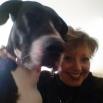 AB: I prefer the morning, although multiple competing schedules don’t always allow for this. I treat editing the way I do my writing: if I work at it a little bit each day, I’ll get it done…and I do!
AB: I prefer the morning, although multiple competing schedules don’t always allow for this. I treat editing the way I do my writing: if I work at it a little bit each day, I’ll get it done…and I do!
10.
When editing, do you edit for a set amount of time, set daily chapter goals, or do you go until you are tired, etc.?
 AB: I leave it to my moods, though I have certain deadlines in mind. There is usually a contest deadline lurking ahead that drives me to finish. I also like to have the book ready for publication in advance of NaNoWriMo so that I’m free and clear to begin the next novel.
AB: I leave it to my moods, though I have certain deadlines in mind. There is usually a contest deadline lurking ahead that drives me to finish. I also like to have the book ready for publication in advance of NaNoWriMo so that I’m free and clear to begin the next novel.
 LM: I set a certain amount of time daily, and I also have a daily chapter goal. I set both of those so that I am completely fresh when I am editing. If I finish the daily chapter or the allotted time passes, I will call it. I do not go over the time I have blocked out in my schedule to avoid missing anything.
LM: I set a certain amount of time daily, and I also have a daily chapter goal. I set both of those so that I am completely fresh when I am editing. If I finish the daily chapter or the allotted time passes, I will call it. I do not go over the time I have blocked out in my schedule to avoid missing anything.
11.
What are a few editing resources that you use?
 LM: I like to utilize a checklist, editing programs, Beta Readers, Professional Editors, thesauruses, grammar websites, Google, grammar reference texts/books, Youtube, my dusty college educated brain (Giggles), blogs, other Authors, and the list continues. (That is code for see below for more resources.)
LM: I like to utilize a checklist, editing programs, Beta Readers, Professional Editors, thesauruses, grammar websites, Google, grammar reference texts/books, Youtube, my dusty college educated brain (Giggles), blogs, other Authors, and the list continues. (That is code for see below for more resources.)
 AB: I constantly refer to the rules of punctuation, which remain fixed in spite of conventional use changes. e.g. the ‘war’ on the semi-colon. The more I blog, the more I ‘unlearn’ the rules, so when it comes time to dig into a 60, 70 or 80K manuscript, I study up. Always, I ask: Oxford comma, or not?
AB: I constantly refer to the rules of punctuation, which remain fixed in spite of conventional use changes. e.g. the ‘war’ on the semi-colon. The more I blog, the more I ‘unlearn’ the rules, so when it comes time to dig into a 60, 70 or 80K manuscript, I study up. Always, I ask: Oxford comma, or not?
Lexi’s Awesome Editing Resource List*
*We are not affiliated with these sites in any way. The links are helpful for editing.
Jerry Jenkins (21 things Checklist)
http://www.jerryjenkins.com/self-editing/
Creative Penn (Editing Questions Answered by Professional Editor/Author Jen Blood)
http://www.thecreativepenn.com/2014/08/11/editing-writing-craft-tips/
Grammar Girl (Editing Checklist)
http://www.quickanddirtytips.com/education/grammar/grammar-girls-editing-checklist
Mike Nappa (4 steps to Edit Book)
http://www.writersdigest.com/editor-blogs/there-are-no-rules/how-to-edit-your-book-in-4-steps
25 Tips for Tightening your Copy
http://thewritelife.com/edit-your-copy
10 Simple Ways To Edit Your Books
https://thewritelife.com/self-editing-basics
KM Edits (Not for Blog)
http://www.helpingwritersbecomeauthors.com/how-i-self-edit-my-novels-15-steps-from/#
12.
A lot of us jump into edits ‘boots first’ right after typing ‘THE END.’ What are the advantages/disadvantages of moving fast?
 AB: The advantage for me is that I’m super keen. The pistons are firing and I know exactly where all the characters are and what motivates them. This makes inconsistencies a lot easier to spot. The disadvantage is that I’m too close to the work, and so I’m more apt to miss dropped words, and issues of clarity. Stepping away from ‘THE END’ strips a lot of that away. Distance really draws out what could be clearer or what scenes really don’t need to be there at all.
AB: The advantage for me is that I’m super keen. The pistons are firing and I know exactly where all the characters are and what motivates them. This makes inconsistencies a lot easier to spot. The disadvantage is that I’m too close to the work, and so I’m more apt to miss dropped words, and issues of clarity. Stepping away from ‘THE END’ strips a lot of that away. Distance really draws out what could be clearer or what scenes really don’t need to be there at all.
 LM: The advantage to jumping right back in is that the story is in the forefront of your mind. The disadvantage is that your eyes aren’t so fresh and you tend to miss issues/mistakes that you will most likely catch when you have stepped away from a project. That is code for I tend to favor NOT jumping right back in. My golden rule is to step away from the full-length written novel for a bare minimum of two weeks before I return to it for the first full book edit pass. That way I can see it fresh as if I am reading it for the first time.
LM: The advantage to jumping right back in is that the story is in the forefront of your mind. The disadvantage is that your eyes aren’t so fresh and you tend to miss issues/mistakes that you will most likely catch when you have stepped away from a project. That is code for I tend to favor NOT jumping right back in. My golden rule is to step away from the full-length written novel for a bare minimum of two weeks before I return to it for the first full book edit pass. That way I can see it fresh as if I am reading it for the first time.
13.
The publishing world is evolving as never before. Do you agree/disagree with the current trend toward ‘sensitivity’ editing in the modern age?
 LM: First let me say some people are vile. And you have to write them accordingly. There is no sensitive way around that. If the story’s essence is rooted in that fact, has a purpose for writing a character a certain way, or a mirroring element is there to strengthen the storytelling. That is the story that must be told.
LM: First let me say some people are vile. And you have to write them accordingly. There is no sensitive way around that. If the story’s essence is rooted in that fact, has a purpose for writing a character a certain way, or a mirroring element is there to strengthen the storytelling. That is the story that must be told.
Now, having said that, as far as my writing in general, I tend to write with a certain level of ‘sensitivity’ anyway with respect for people being people. I don’t buy into people being different. Long before I studied the discipline of Cultural Anthropology[Human Behavioral Studies], I felt, which was confirmed by my studies, that we are all the same at our core. What I am saying is, my writing is written in a way so that anyone can sit down, read the books, and with minimal effort be able to see themselves or elements of themselves inside of the story. The hope is that anyone can connect to it. So, I agree with sensitivity editing because it is writing a story free of stereotyping. To me, that is an enjoyable read. Unlike some may argue, I don’t think it dilutes a story, but quite the opposite. I think that it enriches it and tells a better story. It is a story that is closer to life. As a romance writer, I am not a fan of the girl looking for someone to rescue them. Rather, I write from the unique perspective in the romance genre of a girl looking to share a new chapter of her life with the love of her life as they face realistic challenges. Also, I don’t write a man that can’t access his emotions. Those stories, in my opinion, also are the pits [weak writing]. Unless of course, there is a quality backstory there and there is a purpose [not an overused idea]. I think not writing with the crutches of false ideas gives an author the chance to step up their writing and enhance what they write with depth/substance that everyone can say huh, that’s an important challenge I am facing, and am benefiting as I read this material. I think it forces new dimensions and robust layering. You don’t fall back on comfortable elements of the past but are called to create new dimensions in a written work. You are forced to dive a bit deeper and to peel back the layers of emotion that the other method of storytelling glosses over or allows the reader to remain at a safe distance. That is limitless and something thrilling for the mind to savor, chew on, digest, and evolve to a new level of awareness. I love that!
 AB: I think it depends on genre, non-fiction in particular. In non-fiction, as in journalism, balance is critical to accuracy. Information is conveyed in a manner that should allow readers to debate and then draw their own conclusions. Whereas in fiction, art, character and mood are apt to take the front seat to big-time tells and balance. Villains are villains because they are nasty. They say and do things outside of what the reader finds acceptable in law and culture, which is precisely the point. The insensitivity and cruelty we see in certain characters drive the action driving the protagonist to the big fix (if a ‘happy ending’ is what you’re going for). I don’t see how sensitivity editing would make it better.
AB: I think it depends on genre, non-fiction in particular. In non-fiction, as in journalism, balance is critical to accuracy. Information is conveyed in a manner that should allow readers to debate and then draw their own conclusions. Whereas in fiction, art, character and mood are apt to take the front seat to big-time tells and balance. Villains are villains because they are nasty. They say and do things outside of what the reader finds acceptable in law and culture, which is precisely the point. The insensitivity and cruelty we see in certain characters drive the action driving the protagonist to the big fix (if a ‘happy ending’ is what you’re going for). I don’t see how sensitivity editing would make it better.
14.
Which brings us to the subject of self-censorship. To what degree is editing for the market beneficial?
 AB: There are so many guidelines out there geared to writing success. Whether these guidelines lead to ‘self-censorship’ or are an invaluable metric to publishing success is between writers and their agents/publishers. I like to think that the moment I start tempering my words is also the moment where I need to take a break. I write fiction and I write morally challenged characters, so I have to take care not to make them too nice. 😀
AB: There are so many guidelines out there geared to writing success. Whether these guidelines lead to ‘self-censorship’ or are an invaluable metric to publishing success is between writers and their agents/publishers. I like to think that the moment I start tempering my words is also the moment where I need to take a break. I write fiction and I write morally challenged characters, so I have to take care not to make them too nice. 😀
 LM: I think that as long as the true essence of the story is not altered then editing for the market is extremely beneficial. I feel this way because due to the editing the work falls into a clearer defined market. As a result, a larger number of people will have access to as well as have an opportunity to connect with the book’s material. Without that mild/targeted editing, readers might not have had the chance to meet up with the story.
LM: I think that as long as the true essence of the story is not altered then editing for the market is extremely beneficial. I feel this way because due to the editing the work falls into a clearer defined market. As a result, a larger number of people will have access to as well as have an opportunity to connect with the book’s material. Without that mild/targeted editing, readers might not have had the chance to meet up with the story.
15.
Self-publishing can cut out entire layers including ‘professional’ editing. Does this lend to greater artistic freedom, or heart-wrenching do-overs after the first run?
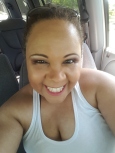 LM: I have taken part in both styles of publishing. Despite my style of publishing, I ALWAYS utilize a professional editor as well as a professional editing program. I do not self-edit alone; however, over time I have learned from personal as well as other professionally conversational/documented resources outside of myself, even with the most skilled eyes professionally editing your book every book will have the occasional typo. As a writer, as I stated previously, you have to understand that some typos never get caught. Even the most experienced, well-known, or traditionally published authors release new editions with modified content. So, to answer the question above, any time you have to make a detailed alteration to a written work it can be heart-wrenching as well as tedious. That’s my way of saying it is not fun no matter what style of publishing.
LM: I have taken part in both styles of publishing. Despite my style of publishing, I ALWAYS utilize a professional editor as well as a professional editing program. I do not self-edit alone; however, over time I have learned from personal as well as other professionally conversational/documented resources outside of myself, even with the most skilled eyes professionally editing your book every book will have the occasional typo. As a writer, as I stated previously, you have to understand that some typos never get caught. Even the most experienced, well-known, or traditionally published authors release new editions with modified content. So, to answer the question above, any time you have to make a detailed alteration to a written work it can be heart-wrenching as well as tedious. That’s my way of saying it is not fun no matter what style of publishing.
Now to address the portion of the question about creative freedom when Indie Publishing versus Traditionally Publishing. I’d have to say for the most part it is close to the same, but in some ways, it is more restrictive to traditionally publish. I will briefly elaborate. There are some cases when you may want to write something that you have experienced within your life, but a publisher may deem it too harsh of a depiction, and the content may be too intense for the publisher’s audience. Another example of a restriction of freedom with a publisher may be a descriptive word while voicing something within a conversation. In very specific cases, saying that someone whispered something versus whimpered would shift the book from mainstream romance to erotic. Sometimes that can diminish the intensity of a moment.
Closing out what I am saying here is, to maintain your creative voice while working with an editor or publishing house it is important to find the right one. I am fortunate on both fronts my editors and publisher respects my voice, and they give me the final say. I feel the story you get when picking up my novel is the one I wanted to tell or at least very close to it.
 AB: Self-publishing, like the writing journey, is not necessarily something done in a vacuum. As writers, we have access to all kinds of writing services staffed by accredited professionals who can make our books better. The decision to use these services are personal ones governed by many things; craft uncertainty and budget are two. I’m lucky in that I belong to a highly-accomplished writing group that strives to excel. I’ve learned a great deal from them while keeping the creative drive alive. I think I try new things on in writing to see how they’ll react. Their critiques, 9 times out of 10, have proven correct.
AB: Self-publishing, like the writing journey, is not necessarily something done in a vacuum. As writers, we have access to all kinds of writing services staffed by accredited professionals who can make our books better. The decision to use these services are personal ones governed by many things; craft uncertainty and budget are two. I’m lucky in that I belong to a highly-accomplished writing group that strives to excel. I’ve learned a great deal from them while keeping the creative drive alive. I think I try new things on in writing to see how they’ll react. Their critiques, 9 times out of 10, have proven correct.
16.
Speaking of editing, which books have your attention at the moment and when will you be sharing them with everyone? Care to give us a peek at the covers (or at the most recent book you have released)?
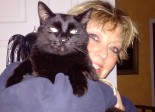 AB: I’m hoping to get SHELL GAME out there in the next couple of months or so (depending on how the editing goes!). I’m really excited about this one in that it’s a departure from the first two novels. Rather than anchor the piece in a funeral home, I decided to take it outside into a fictionalized neighborhood that isn’t everything that it appears to be. As the title implies, everyone concerned plays a kind of SHELL GAME with neighbors, colleagues and even family members.
AB: I’m hoping to get SHELL GAME out there in the next couple of months or so (depending on how the editing goes!). I’m really excited about this one in that it’s a departure from the first two novels. Rather than anchor the piece in a funeral home, I decided to take it outside into a fictionalized neighborhood that isn’t everything that it appears to be. As the title implies, everyone concerned plays a kind of SHELL GAME with neighbors, colleagues and even family members.
The thing I love most about this one is that the main protagonist is a tabby cat with a lot of insight. By being present, he makes things happen for good and for ill. There is still plenty of gonzo and revenge of the type readers have come to expect from HEUER LOST AND FOUND and SCOOTER NATION, but there are more insights, bigger laughs with a dollop of darkness on the side. i.e. One of the central questions is: What is that sausage really made of? 😉
A cat’s-eye view of the human soap opera
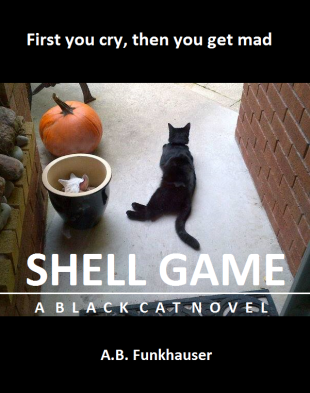 Carlos the Wonder Cat lives free, traveling from house to house in a quiet suburban neighborhood. Known by everyone, his idyllic existence is threatened when a snarky letter from animal control threatens to punish kitty owners who fail to keep their pets indoors. The $5,000 fine / loss of kitty to THE MAN is draconian and mean, but before Team Carlos can take steps, he is kidnapped by a feline fetishist sex cult obsessed with the films of eccentric Pilsen Güdderammerüng. Stakes are high. Even if Carlos escapes their clutches, can he ever go home?
Carlos the Wonder Cat lives free, traveling from house to house in a quiet suburban neighborhood. Known by everyone, his idyllic existence is threatened when a snarky letter from animal control threatens to punish kitty owners who fail to keep their pets indoors. The $5,000 fine / loss of kitty to THE MAN is draconian and mean, but before Team Carlos can take steps, he is kidnapped by a feline fetishist sex cult obsessed with the films of eccentric Pilsen Güdderammerüng. Stakes are high. Even if Carlos escapes their clutches, can he ever go home?
https://abfunkhauser.com/wip-shell-game/
And Lexi?
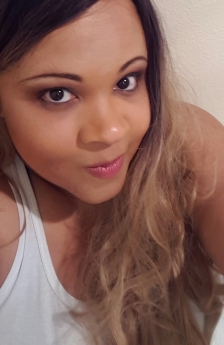 LM: There are three that are in the forefront.
LM: There are three that are in the forefront.
The first is WILDFIRE (coming May 2017), hybrid poetry collection with a short bonus romance accompaniment SOME LIKE IT HOT. SOME LIKE IT HOT is a firehouse romance about an unexpected night of events for Bella and Lt. Xander Garten that changes everything.
The second is a romance about a psychiatrist, Lila, who goes on vacation in Vegas and runs into a sexy familiar face, Clark, she really should not become romantically involved with entitled OUR SECRET (coming Summer 2017).
And finally, PRIVATE LESSONS (coming Summer 2017). A romance-suspense about a recently divorced professional woman, Ryan, who gets much-needed lessons in self-defense and love from her alarmingly sexy private instructor Jimmy.
My most recent release is The Order of Moonlight. A vampire love story about a young woman, Clair, and a mysterious stranger G that invites her to a masquerade ball as well as into his magical world. Is Clair ready for all she will learn about his world?
The Order of Moonlight
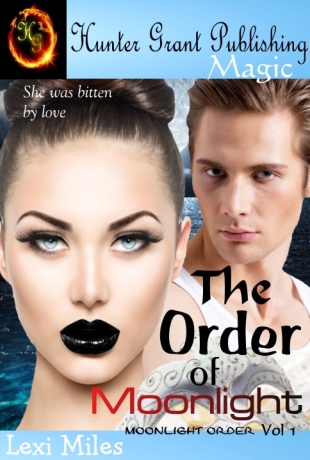 Clair De Lune a young woman, who works at a small town café in the middle of nowhere, likes to live her life off of the radar. One afternoon that all changes when a wildly handsome mysterious suit wearing gentleman walks into her café. Intrigued to know more about the gorgeous enigmatic stranger, when he extends an invite to the masquerade ball later that night, she decides to meet him. Soon Clair finds that there just might be more to him than meets the human eye. Is Clair ready to step into his magical world of passion?
Clair De Lune a young woman, who works at a small town café in the middle of nowhere, likes to live her life off of the radar. One afternoon that all changes when a wildly handsome mysterious suit wearing gentleman walks into her café. Intrigued to know more about the gorgeous enigmatic stranger, when he extends an invite to the masquerade ball later that night, she decides to meet him. Soon Clair finds that there just might be more to him than meets the human eye. Is Clair ready to step into his magical world of passion?
See the Trailer
Get it Here:
https://www.amazon.com/dp/B01MXH3QDL )
Coming Soon
Private Lessons
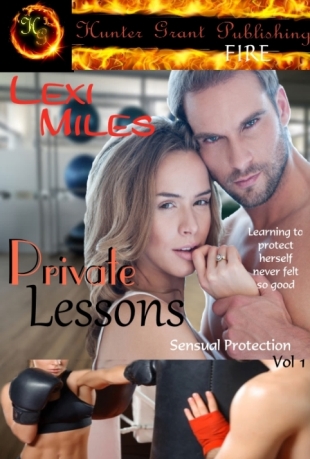 Ryan DeVain, a travel agent, gets tricked into taking much needed self-defense classes by her best friend Piper. She is apprehensive, even given the looming threat of her past, until she meets the ultra-sexy brown haired instructor Jimmy Jalin. Will there be sexy benefits included with his training?
Ryan DeVain, a travel agent, gets tricked into taking much needed self-defense classes by her best friend Piper. She is apprehensive, even given the looming threat of her past, until she meets the ultra-sexy brown haired instructor Jimmy Jalin. Will there be sexy benefits included with his training?
Our Secret
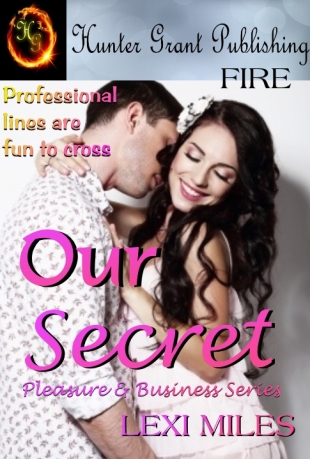 Lila, a psychiatrist, hops on a plane to Vegas with her recently divorced best friend. They have a fun girls’ night out, but when Lila retires to her room she can’t sleep. Instead she has the same haunting thoughts that keep her up every night. Knowing that sleep is not going to happen that night, she goes out on a walk to clear her head. While out, she encounters the every so sexy Clark who just so happens to be off-limits because he’s a client of hers. Will she be able to deny what she feels for him or will they keep Vegas their little secret?
Lila, a psychiatrist, hops on a plane to Vegas with her recently divorced best friend. They have a fun girls’ night out, but when Lila retires to her room she can’t sleep. Instead she has the same haunting thoughts that keep her up every night. Knowing that sleep is not going to happen that night, she goes out on a walk to clear her head. While out, she encounters the every so sexy Clark who just so happens to be off-limits because he’s a client of hers. Will she be able to deny what she feels for him or will they keep Vegas their little secret?
Wildfire Poetry Collection
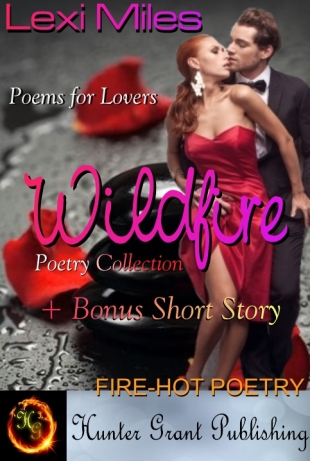 Love in many ways is a wildfire that goes nuts within the heart. The poetry within this romantic collection gets the pulse racing and the heart fluttering. If you are in love, have been in love, or dream to be in love this sweet and sexy collection is for you. Fall in love with Wildfire and you’ll be happy that you did!
Love in many ways is a wildfire that goes nuts within the heart. The poetry within this romantic collection gets the pulse racing and the heart fluttering. If you are in love, have been in love, or dream to be in love this sweet and sexy collection is for you. Fall in love with Wildfire and you’ll be happy that you did!
Some Like It Hot (Bonus Story In Wildfire)
Bella, a computer tech, just so happens to love that Fire House 34 is one of her assignments. It has everything to do with the fact that she gets to see the ever so sexy Lt. Xander Garten daily. But what’s not to like about him; he’s a tall, muscular, and madly heroic firefighter. No wonder Bella has developed an attraction to him. One day after work, Bella’s roommate Janine convinces her to go out for a much needed girls’ night. When Bella’s evening takes a turn for the worst, will a chance meeting with Xander heat things up between them and end up making it the best night of her life?
Ed. – Wow! You’ve got a busy summer ahead! Congrats!!!! ❤
17.
Writing the book is a great achievement. Editing it well, even more so. Do you agree?
 LM: I am going to keep this answer simple, YES!
LM: I am going to keep this answer simple, YES!
 AB: Yes, yes, and yes. Here’s my golden rule:
AB: Yes, yes, and yes. Here’s my golden rule:
DON’T RUSH IT! You spend months or years putting something together that has meaning. Rushing the edits doesn’t serve it. Read it, say it, LISTEN to it. Spelling and grammar usage are as important as continuity, credulity and pacing. Get it right and you’ll love it forever. Your readers will too!
Thank you for stopping in to share a moment with A.B. Funkhauser and Lexi Miles. We hope that you enjoyed what we had to share. Feel free to drop a friendly comment below with your thoughts and other editing tips that have helped you.
Keep laughing. Keep smiling. Keep writing.
xo
About the Authors
A.B. Funkhauser
 Toronto born author A.B. Funkhauser is a funeral director, classic car nut and wildlife enthusiast living in Ontario, Canada. Like most funeral directors, she is governed by a strong sense of altruism fueled by the belief that life chooses us, not we it.
Toronto born author A.B. Funkhauser is a funeral director, classic car nut and wildlife enthusiast living in Ontario, Canada. Like most funeral directors, she is governed by a strong sense of altruism fueled by the belief that life chooses us, not we it.
Her debut novel Heuer Lost and Found, released in April 2015, examines the day to day workings of a funeral home and the people who staff it. Winner of the Preditors & Editors Reader’s Poll for Best Horror 2015, and the New Apple EBook Award 2016 for Horror, Heuer Lost and Found is the first installment in Funkhauser’s Unapologetic Lives series. Her sophomore effort, Scooter Nation, released March 11, 2016 through Solstice Publishing. Winner of the New Apple Ebook Award 2016 for Humor, and Winner Best Humor Summer Indie Book Awards 2016, Metamorph Publishing, Scooter picks up where Heuer left off, this time with the lens on the funeral home as it falls into the hands of a woeful sybarite.
A devotee of the gonzo style pioneered by the late Hunter S. Thompson, Funkhauser attempts to shine a light on difficult subjects by aid of humorous storytelling. “In gonzo, characters operate without filters which means they say and do the kinds of things we cannot in an ordered society. Results are often comic but, hopefully, instructive.”
Funkhauser is currently editing SHELL GAME, a psycho-social cat dramady with death and laughs.
Lexi Miles
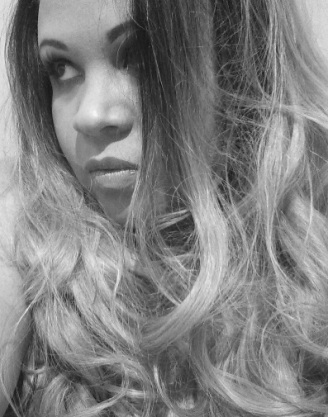 Lexi is currently living in California, has one sister named Cat, and is a proud pup mom of 2 mischievous Yorkies. Tropical warm spots and out of the way ranches are Lexi’s favorite escapes. Lexi loves to giggle. She’s a huge fan of positivity, and she is delighted when she can help someone else smile. Lexi loves a good Netflix binge. She also enjoys music (all genres), baseball, bubble baths, cooking, and long walks on the treadmill (aka working out). As far as writing, she fell in love with it from when she was a kid, and she still finds that she falls more in love with it every day. Lexi is growing a cult following for both her poetry and romance novels and believes that love—all forms—is the most precious gift that we are given in life. She is thrilled to pen romance, and all of that comes with it on paper! To find out more about Lexi, please go to www.LexiMilesAuthor.com!
Lexi is currently living in California, has one sister named Cat, and is a proud pup mom of 2 mischievous Yorkies. Tropical warm spots and out of the way ranches are Lexi’s favorite escapes. Lexi loves to giggle. She’s a huge fan of positivity, and she is delighted when she can help someone else smile. Lexi loves a good Netflix binge. She also enjoys music (all genres), baseball, bubble baths, cooking, and long walks on the treadmill (aka working out). As far as writing, she fell in love with it from when she was a kid, and she still finds that she falls more in love with it every day. Lexi is growing a cult following for both her poetry and romance novels and believes that love—all forms—is the most precious gift that we are given in life. She is thrilled to pen romance, and all of that comes with it on paper! To find out more about Lexi, please go to www.LexiMilesAuthor.com!
Contact:
Lexi’s Links
Website: www.leximilesauthor.com
Amazon: https://www.amazon.com/Lexi-Miles/e/B0196OSLBU
Newsletter: http://eepurl.com/bVg6xj
Email: leximiles.author@gmail.com
Lexi Rom Readers: https://www.facebook.com/groups/1746560782284851
Twitter: www.twitter.com/leximilesbooks
Facebook: www.facebook.com/LexiMilesAuthor
A.B.’s Links
Geo Buy Link: http://myBook.to/ScooterNation
Geo Buy Link: http://myBook.to/heuerlostandfound
Walmart: http://www.walmart.com/ip/Scooter-Nation/53281677
Website: www.abfunkhauser.com
Amazon Author Page: www.amazon.com/author/abfunkhauser
Twitter: https://twitter.com/iamfunkhauser
Facebook: www.facebook.com/heuerlostandfound
Instagram: https://www.instagram.com/funkhausera/
YouTube: https://www.youtube.com/channel/UC0Ztg_M3NvIJV4hDzyXdf9g
Google Plus: https://plus.google.com/u/0/118051627869017397678
Publisher: http://solsticepublishing.com/
Goodreads: http://bit.ly/1FPJXcO

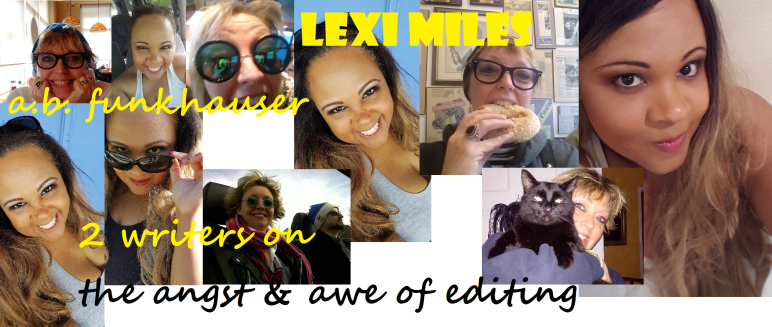

Great interview.
LikeLike
Thanks so much. Lexi and I are separated by a few time zones, but that didn’t stop us from establishing an instant friendship. Friendships like ours become especially important when editing. It can be lonely sometimes. 😀
LikeLiked by 1 person
Don’t I know it.
LikeLike